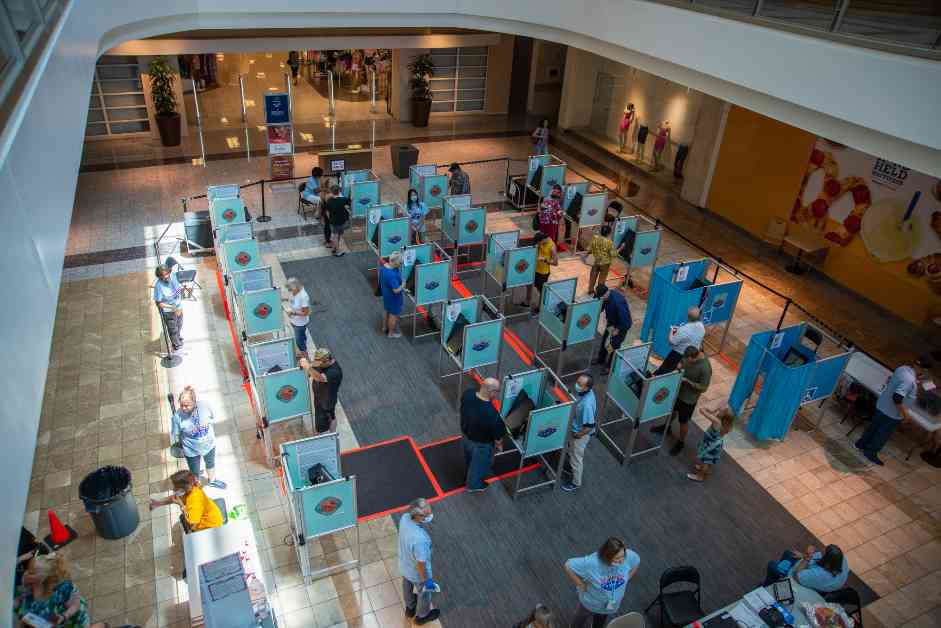Trump Campaign Challenges Nevada Over Alleged Noncitizen Voting: Legal Battle Unfolds
The Trump campaign, alongside other GOP groups, has initiated a lawsuit against Nevada, alleging that the state has failed to adequately remove noncitizens from its voter rolls. This legal action represents the fourth challenge against Nevada’s election laws by Republicans during this election cycle. The lawsuit, filed in the Carson City District Court, specifically targets Secretary of State Cisco Aguilar, accusing him of improper list maintenance and neglecting to investigate the citizenship status of registered voters.
According to the plaintiffs, Nevada has not implemented any regulations to verify the citizenship of individuals on the voter rolls, nor has it systematically removed noncitizens from said rolls. This purported oversight, they argue, results in the dilution of Republican votes and therefore necessitates more rigorous list maintenance practices. The lawsuit also includes the Democratic National Committee and the Nevada Democratic Party as defendants, in accordance with a previous ruling requiring political parties to involve their opponents in any legal proceedings that could impact them.
Previous lawsuits filed by Republicans in Nevada, challenging issues such as the handling of mail-in ballots and voter roll maintenance practices, have been either dismissed or denied, although they are currently under appeal. Despite the fact that no state, including Nevada, permits noncitizens to vote in federal elections, the Trump campaign’s lawsuit asserts that thousands of noncitizens were present on the state’s voter rolls as of December 2020, with some allegedly casting ballots.
In response to these allegations, the secretary of state’s office emphasized that noncitizen voting is already illegal and that existing safeguards prevent ineligible individuals from participating in elections. However, the Trump campaign argues that the presence of noncitizens on the voter rolls undermines the integrity of the electoral process and favors Democratic candidates over Republicans. They are pushing for the state to implement citizenship verification programs to rectify this purported issue.
Challenges to Republican Claims
Despite the assertions made by the Trump campaign and other GOP entities, experts caution against the mischaracterization of routine voter maintenance practices as instances of noncitizen voter fraud. Oftentimes, individuals identified as noncitizens and subsequently removed from voter rolls are actually recently naturalized citizens who have been erroneously categorized. While other states, such as Texas, have conducted purges of noncitizens from voter rolls, the accuracy and fairness of these actions have come under scrutiny.
Moreover, the claim that noncitizen voting substantially benefits Democratic candidates and harms Republicans has been met with skepticism. Election experts point out that the process of proving citizenship can be challenging for certain populations, such as college students and transient individuals, and mandating proof of citizenship during voter registration may disenfranchise eligible voters. Despite the lack of concrete evidence supporting widespread noncitizen voter fraud in Nevada, Republicans persist in their assertions that the issue exists.
Political Implications and Public Perception
The ongoing legal battle over alleged noncitizen voting in Nevada has broader implications for the integrity of the electoral process and public trust in the outcome of elections. With the Trump campaign’s history of challenging election results and promoting unproven claims of fraud, there is a growing concern that these lawsuits serve to sow doubt and undermine confidence in the democratic process.
As the legal proceedings unfold, the Kamala Harris campaign and Democrats have raised objections to the motivations behind the Republican lawsuits, arguing that they are part of a strategic effort to cast doubt on the election regardless of the case outcomes. Despite the overwhelming majority of legal challenges to the 2020 election results being unsuccessful, a significant portion of the American population remains skeptical of the government’s ability to certify elections accurately.
In conclusion, the lawsuit filed by the Trump campaign against Nevada over alleged noncitizen voting represents a pivotal moment in the ongoing debate over election integrity and voter fraud. While the claims made by Republicans are contested by experts and critics, the legal battle underscores the importance of ensuring that electoral processes are fair, transparent, and free from undue influence. The outcome of this lawsuit will likely have far-reaching implications for future elections and the public’s trust in the democratic system.


